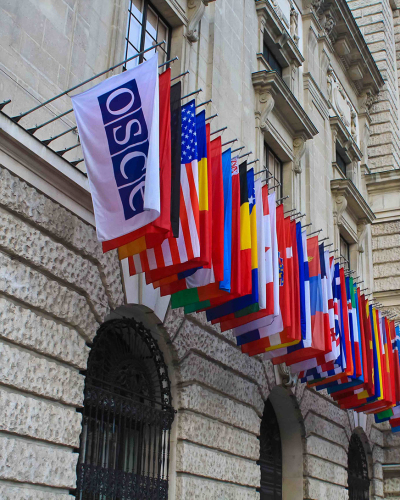‘Intolerance against Christians’: Human rights experts denounce Turkey’s crackdown on religious minorities

Turkey faces mounting criticism for its treatment of religious minorities, particularly Christians, as experts and civil society representatives convened to discuss the issue in Poland last week.
The human rights group ADF International hosted a panel discussion at the OSCE (Organization for Security and Co-operation in Europe) Human Dimension Implementation Conference in Warsaw last Thursday. The event featured human rights experts, including Tatjana Peric, OSCE adviser on combating racism and xenophobia.
The experts emphasized that foreign Christian workers and their families are being targeted for deportation or branded with security codes, effectively banning them from Turkey, ADF International said in a statement.
“By deliberately targeting Christians with de facto bans, the government is actively stifling the Christian faith,” Lidia Rieder, legal officer for ADF International, said, adding that such actions violate Turkey’s commitments to religious freedom and non-discrimination.
The number of Christians in Turkey has plummeted from 20% to 0.2% over the last century.
The Open Doors ministry reports that between 2020 and 2023, at least 75 foreign Christian workers and their families were expelled from Turkey. The 2022 Human Rights Violations Report by the Protestant Church Association cited 185 people who have been arbitrarily branded with the N-82 code, preventing them from entering Turkey.
Pam and David Wilson, a missionary couple, were banned from Turkey after nearly 40 years of residence. They were assigned a G87 code, labeling them as a “threat to security,” and have taken their case to the European Court of Human Rights, supported by ADF International.
Christian minister David Byle was also forced to leave Turkey in 2018 after more than 19 years. Authorities portrayed him as a threat to public order and security, imposing a permanent entry ban after he left the country. The Byles now live in Germany.
“Intolerance against Christians continues to be a concern across the OSCE region today,” said Peric.
Yavuz Aydin, a former judge from Turkey in exile, highlighted the correlation between autocratic tendencies and pressure on minority groups.
ADF International, which is challenging Turkey’s treatment of Christians through cases at the European Court of Human Rights, hopes the court “will hold Turkey accountable.”
Turkish President Recep Tayyip Erdogan aims to spread Turkish Islamic influence, according to the Christian group Barnabas Aid. Despite being a secular state, Turkey’s Christian population is treated as inferior to the Muslim majority, the group says, noting that from January 2019 to March 2022, Turkey deported 78 foreign pastors and their families.
The European Court of Human Rights ruled in November 2022 that Turkey violated the rights of a Greek church by refusing to allow it to register its land.
In June 2022, an Assyrian Christian family was attacked in Turkey’s Mardin province. A Christian cemetery was desecrated the following month.
The Christian community still bears the trauma of Armenian, Assyrian and Greek genocides in the early 20th century, where 3.75 million believers were killed.
While Turkey’s legal system technically protects religious freedoms, the lived reality for Christians is different, according to Open Doors, which says converts from Islam face pressure and threats, and women who convert are most vulnerable to persecution.
Armenian and Assyrian Syriac churches face hostility in southeastern Turkey. They have moved to western areas to escape conflict between the Turkish army and Kurdish resistance groups.
Inland regions of Turkey are more conservative and can be hostile toward Christians, according to Open Doors, which says discrimination is also facilitated by religious affiliation being recorded on ID cards.





















